- Skip to main content
- Accessibility Statement
- Screen Reader
- हिंदी रूपांतरण

M.Phil./Ph.D.
M.Phil./Ph.D. and Direct Ph.D.
M.Phil./Ph.D. The M.Phil./Ph.D. programme is a research programme aimed at training students in independent original research. The students are also required to critically engage with some of the core concepts of philosophy and methods of philosophical enquiry through an in-depth study of identified essential texts in philosophy. After the successful completion of course work, they are required to write a dissertation in an area of their chosen research interest with guidance from faculty member(s) as supervisor(s).
Course Structure The M.Phil. programme is of four semester duration, consisting of 24 credits—16 credits for the course work and 8 credits for the dissertation. The course work consists of 2 core courses of 4 credits each and 2 optional courses, also of 4 credits each. Every student is required to take two core courses in the first semester and two optional courses in the second semester.
In addition to this, the Centre offers a range of optional courses in the areas of Ethics, Epistemology, Metaphysics, Philosophy of Action, Philosophy of Language, Philosophy of Culture, Philosophy of Mind and Consciousness, Philosophy of Social Science, Studies in Analytical Philosophy, Phenomenology and Existentialism, and Social Ontology.
The choice of the two optional courses will be determined by the research interest and field of specialization selected by the student. The course work of M.Phil. programme consists of lectures, presentation of term papers in seminars, and participation in discussions.
Core Courses:
Optional Courses:
Direct Ph.D. The candidates who have completed M.Phil. with 6.0 CGPA or with equivalent published works are eligible for admission to Direct Ph.D. programme in major areas of philosophy such as Ethics, Epistemology, Metaphysics, Legal and Moral philosophy, Aesthetics, Social and Political philosophy, Philosophy of Language, Philosophy of Mind, Philosophy of Action, Philosophical Psychology, Logic, Philosophy of Social Sciences, History of Ideas and allied areas.
Direct Ph.D. Optional Courses List:
1) PH603S – Self Knowledge
2) PH604S – Existential Phenomenology & its Engagements
3) PH605S – Philosophy of Action
4) PH606S – Values and Moral Dilemmas
5) PH607S – Philosophy of Social Sciences
6) PH608S – Philosophy of Language
7) PH609S – Epistemology
8) PH610S – Comparative Philosophy
9) PH611S – Mind and Language
10) PH612S – Ontology of the Social: Philosophical Analysis of Collectivity
11) PH613S - Bhartrhari’s Theory of Meaning
12) PH614S – Hegel’s Phenomenology of Spirit
13) PH615S – Liberalism and the Political Conception of Justice: Communitarian Critiques
14) PH616S – The Idea of a Nation: Gandhi and Tagore
15) PH617S – Philosophical Debates in the Moral Psychology
A warm welcome to the modified and updated website of the Centre for East Asian Studies. The East Asian region has been at the forefront of several path-breaking changes since 1970s beginning with the redefining the development architecture with its State-led development model besides emerging as a major region in the global politics and a key hub of the sophisticated technologies. The Centre is one of the thirteen Centres of the School of International Studies, Jawaharlal Nehru University, New Delhi that provides a holistic understanding of the region.
Initially, established as a Centre for Chinese and Japanese Studies, it subsequently grew to include Korean Studies as well. At present there are eight faculty members in the Centre. Several distinguished faculty who have now retired include the late Prof. Gargi Dutt, Prof. P.A.N. Murthy, Prof. G.P. Deshpande, Dr. Nranarayan Das, Prof. R.R. Krishnan and Prof. K.V. Kesavan. Besides, Dr. Madhu Bhalla served at the Centre in Chinese Studies Programme during 1994-2006. In addition, Ms. Kamlesh Jain and Dr. M. M. Kunju served the Centre as the Documentation Officers in Chinese and Japanese Studies respectively.
The academic curriculum covers both modern and contemporary facets of East Asia as each scholar specializes in an area of his/her interest in the region. The integrated course involves two semesters of classes at the M. Phil programme and a dissertation for the M. Phil and a thesis for Ph. D programme respectively. The central objective is to impart an interdisciplinary knowledge and understanding of history, foreign policy, government and politics, society and culture and political economy of the respective areas. Students can explore new and emerging themes such as East Asian regionalism, the evolving East Asian Community, the rise of China, resurgence of Japan and the prospects for reunification of the Korean peninsula. Additionally, the Centre lays great emphasis on the building of language skills. The background of scholars includes mostly from the social science disciplines; History, Political Science, Economics, Sociology, International Relations and language.
Several students of the centre have been recipients of prestigious research fellowships awarded by Japan Foundation, Mombusho (Ministry of Education, Government of Japan), Saburo Okita Memorial Fellowship, Nippon Foundation, Korea Foundation, Nehru Memorial Fellowship, and Fellowship from the Chinese and Taiwanese Governments. Besides, students from Japan receive fellowship from the Indian Council of Cultural Relations.
- Skip to main content
- Accessibility Statement
- Screen Reader
- हिंदी रूपांतरण
Admission block
A warm welcome to the modified and updated website of the Centre for East Asian Studies. The East Asian region has been at the forefront of several path-breaking changes since 1970s beginning with the redefining the development architecture with its State-led development model besides emerging as a major region in the global politics and a key hub of the sophisticated technologies. The Centre is one of the thirteen Centres of the School of International Studies, Jawaharlal Nehru University, New Delhi that provides a holistic understanding of the region.
Initially, established as a Centre for Chinese and Japanese Studies, it subsequently grew to include Korean Studies as well. At present there are eight faculty members in the Centre. Several distinguished faculty who have now retired include the late Prof. Gargi Dutt, Prof. P.A.N. Murthy, Prof. G.P. Deshpande, Dr. Nranarayan Das, Prof. R.R. Krishnan and Prof. K.V. Kesavan. Besides, Dr. Madhu Bhalla served at the Centre in Chinese Studies Programme during 1994-2006. In addition, Ms. Kamlesh Jain and Dr. M. M. Kunju served the Centre as the Documentation Officers in Chinese and Japanese Studies respectively.
The academic curriculum covers both modern and contemporary facets of East Asia as each scholar specializes in an area of his/her interest in the region. The integrated course involves two semesters of classes at the M. Phil programme and a dissertation for the M. Phil and a thesis for Ph. D programme respectively. The central objective is to impart an interdisciplinary knowledge and understanding of history, foreign policy, government and politics, society and culture and political economy of the respective areas. Students can explore new and emerging themes such as East Asian regionalism, the evolving East Asian Community, the rise of China, resurgence of Japan and the prospects for reunification of the Korean peninsula. Additionally, the Centre lays great emphasis on the building of language skills. The background of scholars includes mostly from the social science disciplines; History, Political Science, Economics, Sociology, International Relations and language.
Several students of the centre have been recipients of prestigious research fellowships awarded by Japan Foundation, Mombusho (Ministry of Education, Government of Japan), Saburo Okita Memorial Fellowship, Nippon Foundation, Korea Foundation, Nehru Memorial Fellowship, and Fellowship from the Chinese and Taiwanese Governments. Besides, students from Japan receive fellowship from the Indian Council of Cultural Relations.

Integrated Ph. D Programmes
INTEGRATED Ph.D. PROGRAMME
Eligibility :
Selection procedure :
Shortlisting for interviews for selection to the Int. Ph.D. Physical Science programme will be based on academic records, performance in the national level exams, statement of purpose mentioned in the application form.
Shortlisting for interviews for Int. Ph.D. Chemical Science programme will be done based on the performance in Joint Admission test for Master’s (JAM) 2024 or a written examination conducted by JNCASR.
The applications for the Int. Ph.D. Biological Science programme will be screened based on overall academic performance for eligibility to attend an entrance exam. Successful candidates will be invited to appear for interviews shortly afterwards.
The final selection to the Int. Ph.D. Degree Programme will be based on the performance in the interview.
Note: Interviews will be held in-person only .
Scholarships/Fellowships: Integrated Ph.D. students are paid fellowship of Rs.19000/- for first two years, Rs.37,000/- during third and fourth year and Rs.42,000/- during fifth, sixth and seventh year.
Medical / Insurance facility: Students are automatically enrolled in a Group Insurance Scheme and a Comprehensive Medical Scheme and have access to an on-campus doctor, as well as to medical facilities elsewhere.
Travel grants: While pursuing Ph.D. from third year onwards, one time students travel grant upto Rs.1,00,000/- is provided to attend international/national conferences.
Our students have attended conferences in countries such as Korea, Iran, France, Singapore, the United States of America, Japan, Sweden, Italy, Israel, etc.
Tuition Fee, etc : Current norms for payment of tuition fees is Rs.5,000/- per annum for first two years and Rs.10,000/- per annum for the next five years. In addition, Rs 200 as medical charges and group insurance fee of Rs. 25 will be charged every month.
Link to degree programme
© 2021, JNCASR, Jakkur, Bangalore, India

Old Website
Skip to main content
Screen Reader

CIMAP-JNU Ph.D programme
Hrd cell coordinates all the academic activities at csir-cimap related to the phd programs and training. the major activities facilitated through hrd cell include:, admissions of students to phd programmes (cimap-jnu phd programmes), registration, assessments, preparation of academic calendar, constitution of doctoral/research advisory committees (dac/rac) and conductance of comprehensive examination, seminars and pre-phd presentations., synopsis/thesis submission and conductance of phd viva-voce examinations for the award of doctoral degree., maintenance of student records starting from their registration till completion of their tenure at csir-cimap., short-term training (internship) for postgraduate students from colleges/universities in various r&d divisions., act as a channel of communication between the faculty/students with jnu., cimap-jnu phd programme offers ph.d. in life sciences. admission to this programme is conducted twice in a year; once in january and once in august. 83 students have been awarded phd under this programme since 2007 and 70 students are currently enrolled., eligibility criteria:, candidates with a master’s degree in sciences and a national level fellowship (jrf/srf) from any of the funding agencies (ugc, csir, dbt, dst etc.), which is tenable at csir-cimap, are eligible to apply., how to apply:, online application to [email protected] , against advertisement when notified in the website of csir-cimap..
Phd Admissions at JNU 2023-24, Courses and fees, Application Process
Introduction.
Jawaharlal Nehru University( JNU) could be a open central college found in New Delhi, India. It was set up in 1969 by an act of parliament and named after Jawaharlal Nehru, India's first Prime Minister.
JNU could be a commanding university in India and offers a wide run of undergraduate, postgraduate, and doctoral programs. The college is known for its solid research center and its commitment to scholastic excellence.
JNU has 10 seminaries and 4 uncommon centres, advertising programs in a variety of disciplines, counting humanities, social sciences, natural sciences, designing, and design. The college moreover has a number of interdisciplinary programs.
JNU is home to a expansive and distinctive understudy body, with scholars from each over India and the world. The university is also known for its dynamic campus life, with a variety of pupil associations and conditioning.
JNU PhD program Eligibility Criteria
The eligibility criteria for JNU PhD program are as Include:
- Master's degree within the relevant teach with a least of 55 marks or equivalent grade.
- Master's degree in the relevant teach with a least of 55 marks or equivalent review.
- Acceptable research experience and publications.
The admission process for PhD programs in Jawaharlal Nehru University( JNU) is as Includes:
1. Eligibility Applicants must have a Master's degree in the relevant discipline with a minimum of 55 marks. They must also have a good research record, as substantiated by publications and exploration experience.
2. Application The Application process for PhD programs in JNU opens in July and closes in September. The application form must be filled in and submitted beside the specified documents.
3. Entrance Examination The entrance examination for PhD programs in JNU is conducted by the National Testing Agency( NTA). The test is held in computer- grounded mode and consists of numerous- choice questions( MCQs) on common aptitude, subject knowledge, and investigate inclination.
4. Interview The candidates who qualify the entrance examination are called for an interview. The interview is conducted by a board of specialists within the applicable teach.
5.Selection The final choice of candidates is based on their execution within the entrance examination and the Interview.
The important dates for PhD confirmation 2023 in JNU are as follows:
The required documents for the PhD application in JNU are as follows
- Master's degree certificate
- Master's degree certificate( if applicable)
- Research experience certificate( in case pertinent)
- Publication list( on the off chance that pertinent)
- Two passport- size photographs
- Tested Duplicates of all instructive instruments
For Admission Inquiry Call/WhatsApp +91 9917698000
JNU PhD program Selection Process
The selection handle for JNU PhD program is as follows:
- Open level entrance examination The first organize of the selection handle is a open level entrance examination conducted by the National Testing Agency( NTA). The exam is held in computer- based mode and comprises of multiple- choice questions( MCQs) on common fitness, subject knowledge, and investigation fitness.
- Interviews The candidates who qualify the entrance examination are called for an interview. The meet is conducted by a board of experts in the pertinent discipline.
JNU PhD program Fees
The fees for JNU PhD program are as follows:
How to Apply
The application for JNU PhD program can be submitted online through the university's website . The application frame can be downloaded from the site and must be filled in and submitted along with the desired records.
The required documents are as follows:
- Master's degree instrument( if applicable)
- Research experience certificate( if applicable)
- Publication list( if applicable)
- Two passport- size photos
- Self-Tested copies of all educational certificates
Here are some PhD Courses offered by JNU:
- PhD in Economics
- PhD in Political Science
- PhD in Sociology
- PhD in Hindi
- PhD in History
- PhD in Computer Science
- PhD in Mathematics
- PhD in Physics
- PhD in Chemistry
- PhD in Geology
- PhD in Engineering
Also Read: Phd Admissions at Amity University, Noida
Here are some frequently Asked Questions
Q: how can i get into jnu for a phd programme.
A: To get admission in JNU for PhD, you need to follow these steps
- Check the eligibility criteria for the PhD program you want to apply for.
- Download the application form from the JNU website.
- Fill in the application form and submit it along with the required documents.
- Show up for the National Level Entrance Examination( NTA) for PhD.
- still, you will be called for an meet, In the event that you qualify the entrance examination.
- Candidates will be chosen based on their execution within the entrance exams and the interview.
Q: Is JNU PhD admission open?
A: Yes, JNU PhD admission is open for the scholastic time 2023- 24. The final date for online operation is 15 September 2023.
Q: What's the final date for JNU PhD admission 2023?
A: The final date for online application for JNU PhD admission 2023 is 15 September 2023.
Q: How much does JNU pay for PhD?
The JNU PhD stipend for 2023- 24 isRs. 31,000/- per month for the primary two a long time andRs. 35,000/- per month for the consequent a long time. The paycheck is additionally qualified for HRA and other remittances.
Q:What are the rules for PhD in JNU?
The rules for PhD in JNU are as follows:
- The least eligibility requirement for PhD could be a Master's degree with a least of 55 marks.
- The PhD program is a full- time program and the length is ordinarily 3 times.
- The PhD scholars are required to require a qualifying exam within the to begin with time.
- The PhD students are too required to publish at slightest two investigation papers in peer- reviewed journals.
- The PhD understudies are required to yield a thesis within the last year.
Q: Have PhD seats diminished in JNU?
A: Yes, the number of PhD seats in JNU has dropped in later years. This can be due to a number of components, counting the expanding fetched of instruction and the restricted availability of funding.
Q: Is net obligatory for PhD in JNU?
A: NET isn't obligatory for PhD in JNU. In any case, it's prudent to have NET/ Door score as it'll allow you an edge in the choice process.
Q: Do PhD students get paid in JNU?
A: Yes, PhD students in JNU are qualified to admit a annually stipend. The sum of stipend depends on the student's academic performance and research advance.
Q: Is JNU better than DU?
A: Both JNU and DU are head universities in India and offer a great quality of education. still, there are some crucial differences between the two colleges. JNU is a research- ferocious university and places a solid accentuation on research. DU, on the other hand, could be a more teaching- oriented college. JNU is additionally known for its magnanimous and dynamic climate, while DU is more conventional. Eventually, the best university for you'll depend on your individual preferences and goals.
- Notification
Popular News

Alagappa University Books PDF For Semester 4
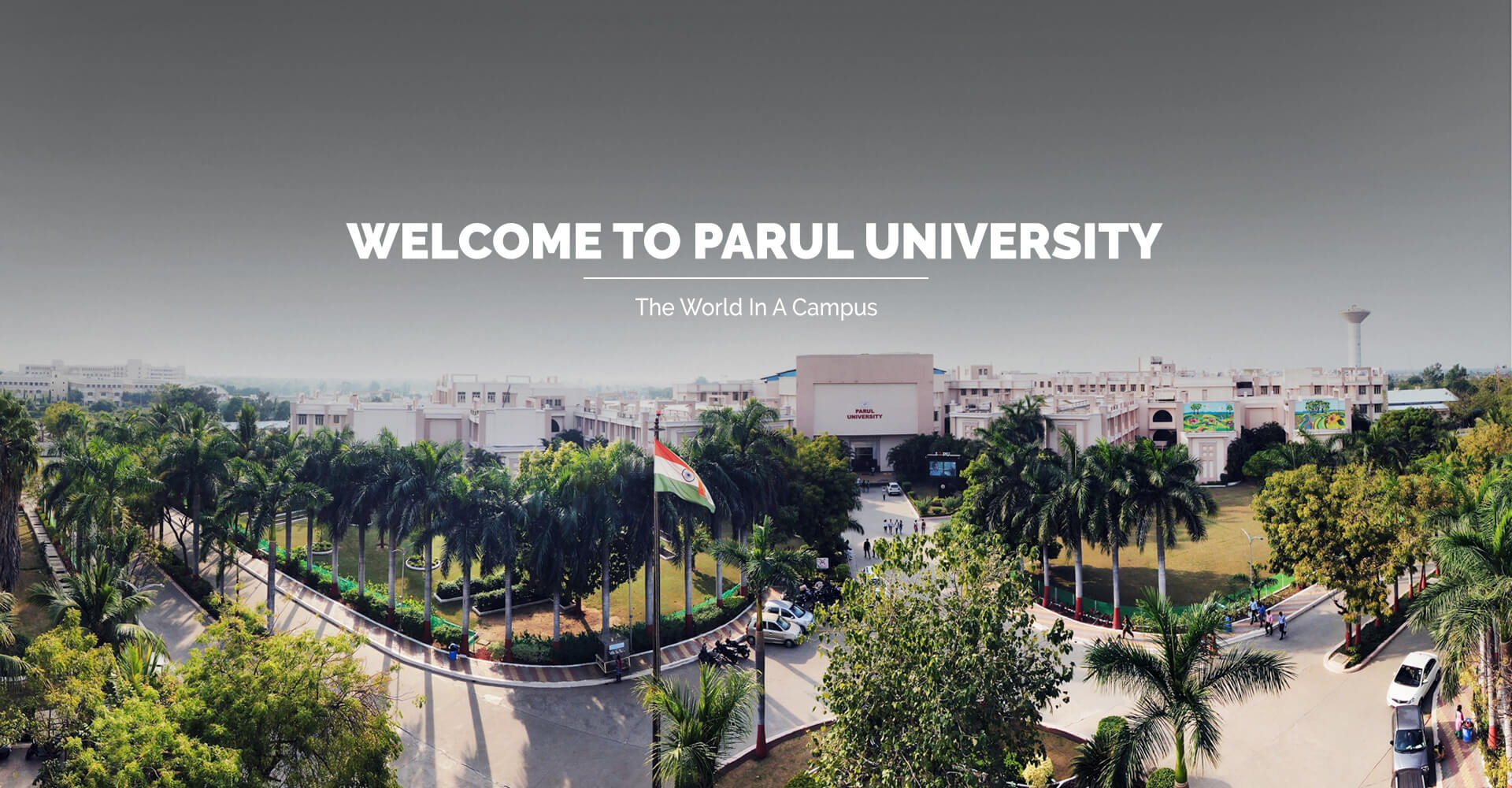
Parul University PhD Admission 2024-25 Open, Eligibility Criteria, Ranking, Admission Process, Cutoff, Results, Exam,
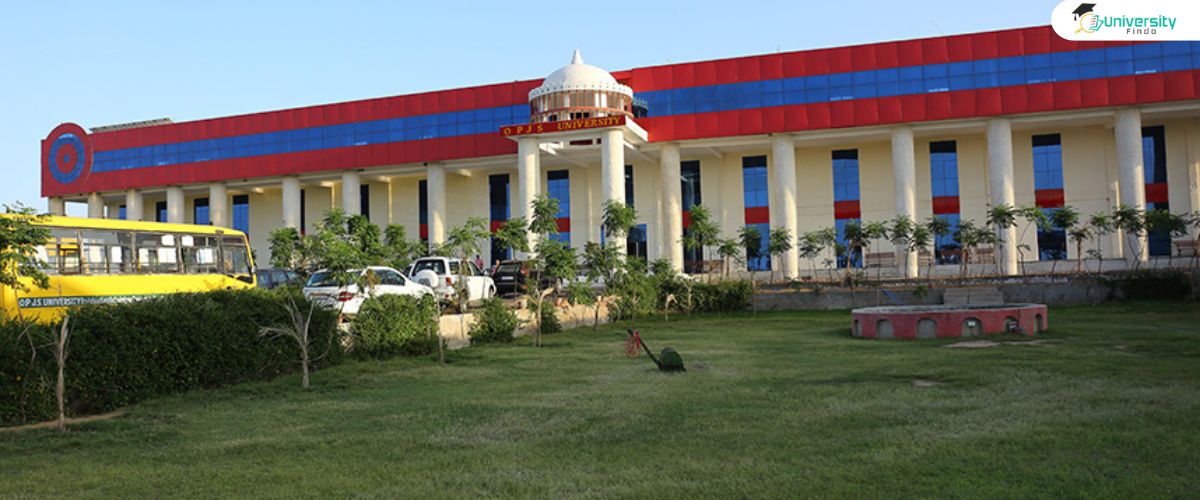
Opjs university churu 2023-24 is Fake or Not ?

Nirma University Jee Main Cutt Off 2023-24

Karpagam University PhD Admissions 2024-25: Application Process, Courses, Fees, Eligibility
Top colleges.
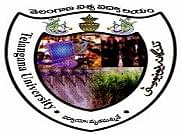
Telangana University

Jagannath University

PES University
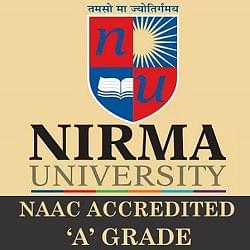
Nirma University
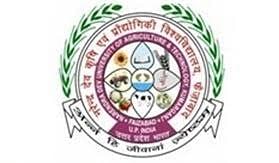
Narendra Deva University of Agriculture and Technology

Guru Angad Dev Veterinary and Animal Sciences University
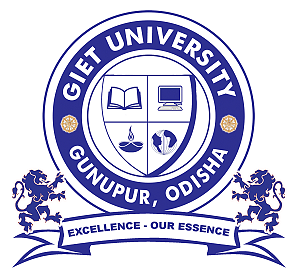
GIET University
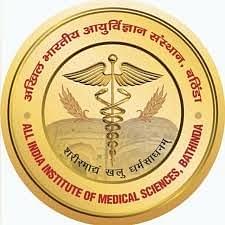
All India Institute of Medical Sciences
- Quick Enquiry
Enter your details to receive a call back from us.
Undergraduate vs. Graduate: Educate Yourself On The Difference
- Undergraduate Meaning
- Undergraduate Student And Degree
- Graduate Meaning
- Graduate Degree And Student
- Graduate Origin
- Postgraduate Meaning
⚡ Quick summary
The main difference between undergraduate and graduate is that undergraduate is always used in the context of the first level of college or university education (the level where you can earn a bachelor’s degree ). In terms like graduate student and graduate degree , graduate refers to a level of advanced education beyond the undergraduate level, especially a master’s degree or doctorate . The noun graduate is more general, simply referring to a person who has completed a level of education (someone who has graduated ).
The difference between undergraduate and graduate is a difference of degrees (*throws graduation cap in the air to celebrate the pun*).
The level of education that each word involves varies depending on how the word is being used, and there are situations in which both words can be used in the same situation. For example, you can become a graduate student after graduating with an undergraduate degree.
The word graduate can mean very different things depending on whether it’s used as a noun (as in recent high school graduates ), an adjective (as in graduate student and graduate degree ), or a verb (as in I plan to graduate next May ). The same goes for its shortened form, grad , which can be used as a noun (as in Congrats, grads! ) or an adjective (as in grad program ).
Undergraduate can also be used both as a noun (as in I’m an undergraduate at Stanford University ) or an adjective (as in I’m working toward my undergraduate degree ). It can be shortened to undergrad in both cases.
By the end of this article, you’ll have an advanced degree in all the different ways graduate, grad , undergraduate , and undergrad are used, and what they mean in each case.
What does undergraduate mean?
An undergraduate is “a student in a university or college who has not received a first, especially a bachelor’s, degree.” For example, a college student might say I’m an undergraduate at the University of Texas if they were pursuing a bachelor’s degree there.
Undergraduate is also commonly used as an adjective in this same context, in terms like undergraduate student , undergraduate degree , and undergraduate studies.
Undergraduate is often shortened to undergrad as both a noun and an adjective.
In undergraduate, the prefix under- is used to indicate a lower rank or status. The educational status of an undergraduate student is below that of a graduate student.
What’s the difference between wisdom and knowledge ? Here’s a lesson on the two terms.
What is an undergraduate student ? And what is an undergraduate degree ?
An undergraduate student is a student who is pursuing a degree at the first level of higher education (meaning the level after high school) at a college or university. Undergraduate students are typically those working to earn a bachelor’s degree (or, less commonly, an associate’s degree ). These degrees are often referred to with the general term undergraduate degree.
Outside of the US, an undergraduate degree is sometimes called a first degree. There are also other types of undergraduate degrees outside of the US, such as a foundation degree (which, like an associate’s degree, is typically a two-year degree).
What does graduate mean?
As a noun, the word graduate [ graj -oo-it ] refers to “a person who has received a degree or diploma on completing a course of study.” In other words, a graduate is someone who has completed a particular level of schooling or an educational program—a child who just finished kindergarten and a doctor who just completed medical school are both graduates. It can even be used figuratively , as in She’s a graduate of the school of hard knocks.
As a verb, graduate [ graj -oo-eyt ] means “to receive a degree or diploma on completing a course of study.” The process of graduating—and the ceremony itself—is called graduation .
As an adjective, graduate [ graj -oo-it ] means something more specific. It’s used to indicate that a student, degree, or educational program is an advanced one, beyond the level of a bachelor’s degree. This sense of graduate is most commonly used in terms like graduate degree, graduate school , graduate program, and graduate student.
What is a graduate degree ? And what is a graduate student ?
Graduate degree typically refers to a degree beyond a bachelor’s, most commonly a master’s.
A graduate student is a student who’s pursuing an advanced degree after having earned their undergraduate degree (such as a bachelor’s degree) by graduating from an undergraduate program. Calling someone a graduate student most often means they are pursuing their master’s degree, but it may be another advanced degree, such as a PhD (You’d most commonly call such students PhD students. Or you might say they are working toward their doctorate or their doctoral degree.)
To earn a graduate degree, graduate students go to a division of a university known as graduate school , and such a program is often called a graduate program. In all of these terms, graduate is often shortened to grad : grad school , grad student , grad program . (A student doesn’t become a graduate student until they take graduate-level courses. For example, if a student graduates with a bachelor’s degree and then later pursues a different bachelor’s degree, they are still an undergraduate student .)
Some graduate studies are referred to in more specific ways: medical students go to medical school to earn their medical degree ; law students go to law school to earn their law degree.
Do you know the difference between these highly-esteemed graduate degrees and titles: PhD, MD, and Dr ?
Where does the word graduate come from?
Graduate comes from the Medieval Latin graduārī, meaning “to take a degree.” It ultimately derives from the Latin gradus, meaning “a step.” Each time you graduate, you take a step to the next level of education.
What does postgraduate mean?
The adjective postgraduate is sometimes used in the same way as the adjective sense of the word graduate, especially in the UK, as in postgraduate student or postgraduate studies.
Postgraduate should not be confused with postdoctoral , which refers to studies, research, or professional work above the level of a doctorate.
How to use undergraduate vs. graduate
The best way to sort out the different meanings of undergraduate and graduate is to determine whether each word is being used as a noun, an adjective, or a verb. Here’s an easy breakdown of the differences.
- undergraduate (noun): A college student pursuing a non-advanced degree, most commonly a bachelor’s degree. Can be shortened to undergrad.
- undergraduate (adjective): Used in the context of colleges and university programs ( undergraduate programs ) where students are pursuing a degree (generally referred to as an undergraduate degree ) that is not an advanced degree. Also sometimes shortened to undergrad.
- graduate (noun): A person who has completed a particular level of schooling or educational program. Can be shortened to grad.
- graduate (verb): To complete a level of schooling (and, typically, to receive a degree or diploma). You can graduate from kindergarten, high school, college, graduate school, medical school, etc.
- graduate (adjective): Used in the context of advanced schooling—a level beyond a bachelor’s degree, most commonly a master’s program. Used in terms like graduate student , graduate school , graduate degree , graduate program , graduate courses , etc. Often shortened to grad.

Examples of undergraduate, undergrad, graduate, and grad used in a sentence
Let’s look at some examples of these words in actual, real-life use to get the meanings straight.
- As an undergraduate, she had studied engineering; as a graduate student, she switched to architecture.
- I completed my undergraduate degree after five years and a lot of hard work.
- As a graduate student, you will be expected to complete a thesis.
- You should start thinking about graduate school applications before you graduate.
- Most of the applicants for this position are recent college graduates.
- I’m still an undergrad, but I’m hoping to start grad school next fall.
- I’m a UGA grad, but I almost went to Georgia Tech.
Go Behind The Words!
- By clicking "Sign Up", you are accepting Dictionary.com Terms & Conditions and Privacy policies.
- Email This field is for validation purposes and should be left unchanged.
No matter who is graduating, here are tips on how to craft a perfect congratulations card for their achievement.
Trending Words
Language Stories

[ duhm -b uh l-dawr ]
- Comments This field is for validation purposes and should be left unchanged.
Doctor of Education Leadership
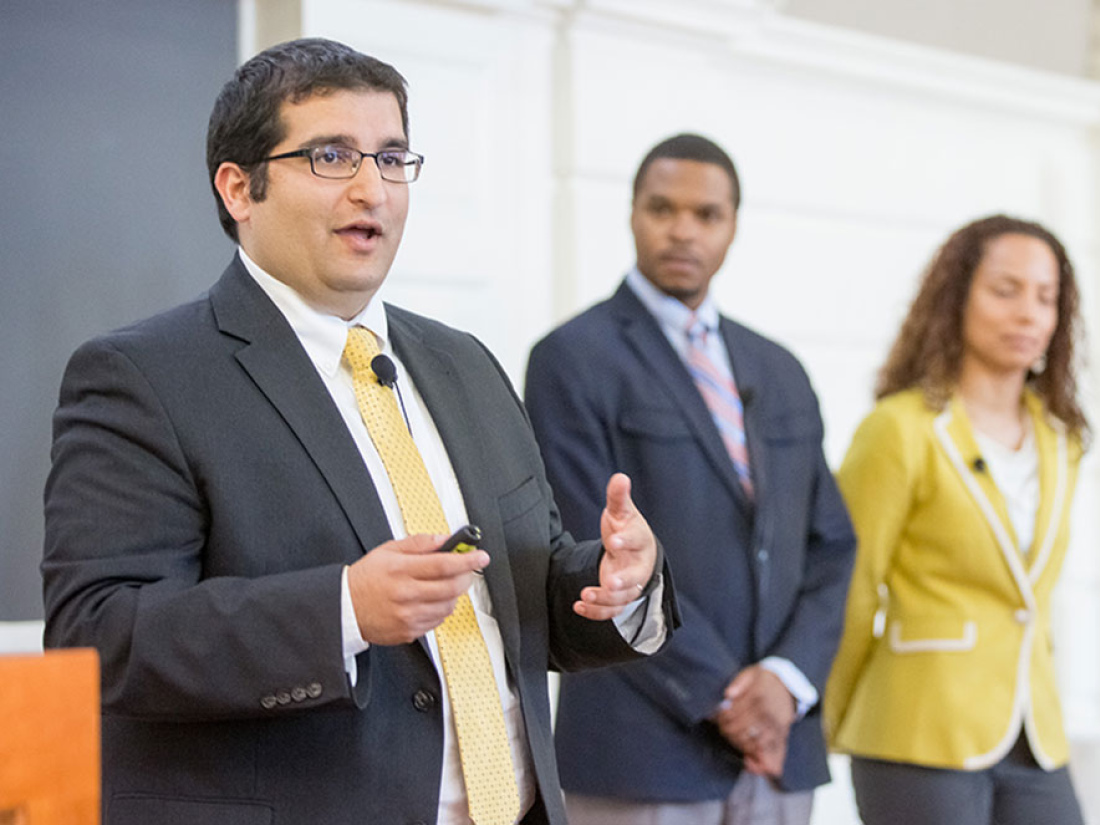
Additional Information
- Download the Doctoral Viewbook
- Admissions & Aid
America needs transformative leaders in preK–12 education whose passion for education quality and equity is matched by a knowledge of learning and development, the organizational management skills to translate visionary ideas into practical success, and a firm grasp of the role of context and politics in shaping leadership. Graduates of the three-year, multidisciplinary Doctor of Education Leadership (Ed.L.D.) Program at the Harvard Graduate School of Education will be prepared to become those leaders.
The Ed.L.D Program — taught by faculty from the Harvard Graduate School of Education, the Harvard Business School, and the Harvard Kennedy School — will train you for system-level leadership positions in school systems, state and federal departments of education, and national nonprofit organizations. Ed.L.D. is a full-time, three-year program built on a cohort learning model. Cohorts consist of up to 25 students from diverse professional backgrounds (including district/charter management leaders, nonprofit directors, principals, teachers, and policy researchers) who progress through the program together.
All Ed.L.D. students receive a full tuition funding package plus stipends, work opportunities, and a paid third-year residency at a partner organization.
The Ed.L.D. Program prepares graduates to do work for the public good in the American public education sector, whether that be at the system or state level. Specifically, the program is designed to accelerate the progress graduates make toward achieving meaningful impact in influential roles and/or crossing boundaries in the following spaces in the public education sector:
- PreK–12 district or CMO leadership roles : superintendent of schools, chief academic officer, and/or deputy superintendent
- Foundation/philanthropy roles: director, president and CEO, senior fellow
- Education nonprofit roles : president or executive director of backbone or collective impact organizations which support preK–12 schools. Ed.L.D. graduates will lead education nonprofits that explicitly focus on improving outcomes and opportunities for children, families, and communities.
- State or federal education leadership roles : commissioner or deputy commissioner roles. Could also include public education advocacy or education policy advisers to senior government officials.
- Social Entrepreneurship and Innovation roles: Founder, CEO, president
Curriculum Information
The Ed.L.D. curriculum is a balance of multidisciplinary coursework and practice-based learning. Core courses and electives are taught by recognized leaders from across Harvard’s graduate programs in fields like data-based education reform, organizational change and innovation, and effective leadership strategies for urban schools. You will develop and test your leadership skills through team projects and an immersive third-year residency.
All students in the cohort take the same classes in four foundational content areas: learning and teaching, leadership and organizational change, politics and policy, adult development, and leadership inside and out (including one-on-one executive coaching). Courses taken during the first-year focus on practice-based learning and serve as the framework of your first-year experience.
Sample HGSE Courses
- Leading Change
- How People Learn
- Ed.L.D. Proseminar
- Leadership, Entrepreneurship, and Learning
- Race, Equity, and Leadership
- Practicing Leadership Inside and Out
- Sector Change
- The Workplace Lab for System-Level Leaders
View all courses in the Academic Catalog.
Each cohort member works with program advisers to choose an individualized sequence of electives from any of the Harvard graduate schools. You will work closely with the program faculty and staff during your second year to determine the best match with a partner organization for your third-year residency. Matches are driven by mutual interest between the resident and the partner organization, and each student's career and learning goals and geographic preferences.
- Second Year Practicing Leadership Inside and Out
- Driving Change
- Education Sector Nonprofits
- Negotiation Workshop
- Coaching with Equity in Mind
- Ethnic Studies and Education
- Deeper Learning for All: Designing a 21st Century School System
- Institutional Change in School Organizations, Systems, and Sectors
You will take part in a 10-month paid residency at one of our partner organizations. There, you will work on a strategic project which synthesizes your experience and learning into a written Capstone project. You will stay connected to your Ed.L.D. cohort and HGSE through technology and by returning to Harvard periodically for intensive workshops.
Paid Residency
Our partner organizations include school systems and departments of education, as well as some of the nation's most influential and dynamic nonprofit, mission-based for-profit, and philanthropic organizations.
You will be intentionally pushed out of your comfort zones and asked to work systemically and make a significant contribution to the partner organization. In addition, the residency will provide you with the professional mentoring, practical experiences, and network of connections they need to position themselves as future leaders in the education sector.
Strategic Project
You will define (with supervisors from your partner organization) a strategic project on which to focus. You will have the opportunity to lead one or two major efforts on behalf of the organization, such as the creation or implementation of current initiatives. The project allows you to practice and improve leadership skills, add important value to the mission and strategy of the partner organization, work systemically, and hold high-level accountability.
During the residency period, you will produce a written Capstone. The Capstone is a descriptive, analytic, and reflective account of your third-year leadership contributions to a strategic project within an Ed.L.D. partner organization. It is a demonstration of your ability to engage others, develop strategy to successfully address and diagnose challenges, work toward a vision and goals, and learn from the results.
Sample Topics
- Accountability, Coherence, and Improvement: Leadership Reflection and Growth in the Los Angeles Unified School District
- Leadership Development for Entrepreneurial Education Leaders Working to Build Public & Private Sector Support
- Disrupting Teacher Preparation: Lessons in Collaboration and Innovation Across the Learning to Teach Community of Practice
- Pursuing Educational Equality for English Language Learners
Sample Summaries
- Breaking Down Silos in a School District: Findings from an Ed.L.D. Project in Montgomery County
- Expanding Students' Access to Meaningful STEM Learning Opportunities Through Strategic Community Partnerships
- Developing a New Teacher Leadership and Compensation System in Iowa: A Consensus-Based Process
- Finding Great Teachers for Blended-Learning Schools
GSE Theses and Dissertations from Digital Access to Scholarship at Harvard (DASH)
Program Faculty
Ed.L.D. students learn with renowned faculty from the Harvard Graduate School of Education, Harvard Business School, and Harvard Kennedy School. Faculty from the three schools share their individual expertise in the Ed.L.D. Program and work collaboratively to provide a challenging and coherent experience for students. Faculty who teach in the Ed.L.D. core curriculum and advise Ed.L.D. students include:
Faculty Director

Frank D. Barnes
Frank Barnes is faculty director of the Doctor of Education Leadership Program. He has over 30 years experience as an educator, researcher, and organizer. As a chief accountability officer, he led turnaround efforts for large public school districts, including Boston Public Schools and Charlotte-Mecklenburg Schools.
Kathryn Parker Boudett

Ebony N. Bridwell-Mitchell
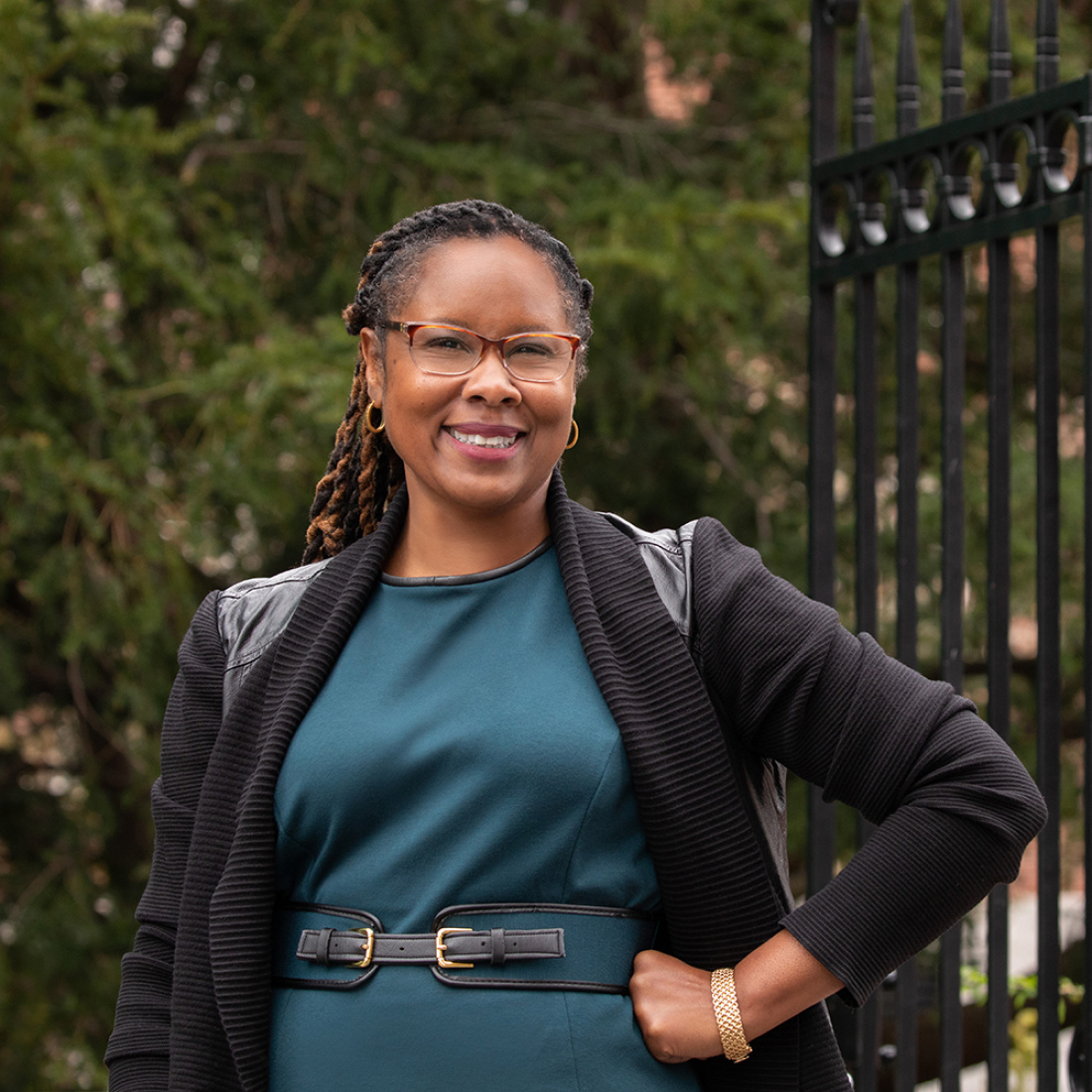
Jennifer Perry Cheatham

Elizabeth City

Candice Crawford-Zakian

Marshall Ganz

Adria D. Goodson
Deborah helsing.

Monica C. Higgins

Deborah Jewell-Sherman

Lisa Laskow Lahey

Mary Grassa O'Neill

Irvin Leon Scott

Catherine Snow

Michael L. Tushman
Martin west.

Introduce Yourself
Tell us about yourself so that we can tailor our communication to best fit your interests and provide you with relevant information about our programs, events, and other opportunities to connect with us.
Program Highlights
Explore examples of the Doctor of Education Leadership experience and the impact its community is making on the field:
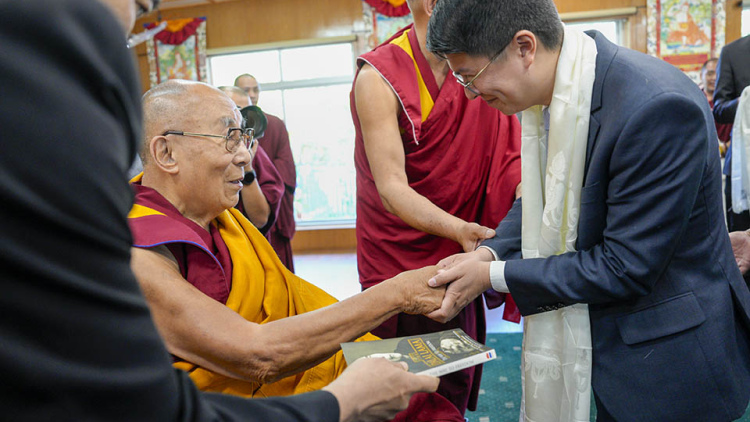
Do We Need Happiness Teachers?
After a trip to meet with the Dalai Lama, an Ed.L.D. student says we do

Combatting Chronic Absenteeism with Family Engagement
As post-COVID absenteeism rates continue unabated, a look at how strong family-school engagement can help
Western Colorado University Graduate Program in Creative Writing Announces New Screenwriting Director

Western Colorado University’s Graduate Program in Creative Writing (GPCW) is excited to announce the hiring of veteran screenwriter James Napoli as the program’s new Screenwriting Director.

In his role as a professional story analyst for Los Angeles production companies, Napoli has read and evaluated nearly a thousand works for the screen. His screenplay Nick & Vin was a top ten percent finisher in the Academy Nicholl Fellowships, and he is currently developing an original one-hour television pilot project, Nightside .
He has optioned three original screenplays and has written and directed the festival award-winning dramatic short films The Priests and Nobody Gets Hurt . He co-created and co-hosted the cinema-themed podcast Movies Not Movies, and, as Head Writer for the Sirius/XM audio drama program New Frequency , he created over fifty original plays in every genre.
Napoli’s scholarly work includes contributions to The Handbook of Script Development (Palgrave Macmillan), Perform: Succeeding as a Creative Professional (Focal Press), and Routledge Research in Higher Education’s Globally Networked Teaching in the Humanities: Theories and Practices . For many years, he also contributed articles on screenplay craft to Creative Screenwriting Magazine .
“I am delighted to take on this new role as part of a remarkable program that nurtures artistry and develops the unique, individual voices writers will need to stand out in their professions,” Napoli said. “I cannot imagine a community of students and colleagues that could be more wonderfully aligned with my approach to screenwriting, teaching, learning and life.”
The GPCW is thrilled to welcome Napoli into the program and enthusiastic about how his leadership will help grow the Screenwriting concentration. CMarie Fuhrman, Associate Director of the GPCW and Chair of the Screenwriting Director Search Committee, said, “James’s eagerness, congeniality, approachability, and industry and craft knowledge, coupled with his desire to find a home for his career and passion, make us confident that he will build the Screenwriting program to nationwide visibility and be a valuable and wonderful teacher and colleague.”
For more information about Western’s graduate-level screenwriting program, contact GPCW Program Support Coordinator Sarah Goettsch at [email protected] .
Author Credit: Seth Mensing
Photo Credit: Courtesy
Related Stories

Western’s Newest Graduate Program is Already Making a Difference in Rural Communities

Western’s Clark School wins grant to help add value to internships

Western Skimo Athlete Brianna Rickert Aims for Olympic Gold
Take the next step.

Apply to Western
We understand that applying to a university can be daunting, which is why we make our admission process as simple and straightforward as possible. Learn more about applying to your program of choice at Western.

Visit Western
The best way to find out what makes Western such a special place is to experience it for yourself. Our student-led tours give you an insider’s perspective on everything from academics to student life.

Alumni Community
We keep the Mountaineer spirit going strong within our alumni community. Whether getting together with friends at an annual event, making a donation or mentoring a student, graduates continue to play an important role in the Western community.

Request Information
Want to discover more about Western? Request information today to get in touch with the admissions team.
Select your Undergraduate Student Type
More From Forbes
16 high-paying jobs you can get with an associate degree in 2024.
- Share to Facebook
- Share to Twitter
- Share to Linkedin
Associate degrees allow you to test the waters before committing full-time to a career path
If you've just graduated (or are about to graduate) with your associate degree, you will be pleased to know that you have now unlocked the door to a myriad of career opportunities—many of which are lucrative and offer career progression and competitive salaries.
Going to college to pursue a four-year or advanced degree isn't for everyone. But obtaining relevant certifications, practical experience, and continuously updating your skills are accessible to almost everyone, and you can use your associate degree as a stepping stone to further enhance your job prospects and earning potential.
Why Choose An Associate Degree?
Associate degrees are essential in our economy as they enable aspiring professionals to gain practical, hands-on skills, and are more easily accessible and affordable than further undergraduate or postgraduate education.
This ensures you are not tied down to debt for an extended period of time, and you are able to reap many financial rewards through combining this with top-up certifications and training within your chosen field.
Getting an associate degree also allows you to explore and experiment with different careers, relatively risk-free.
Additionally, associate degrees are skills and employment-oriented, so they get you into the workforce sooner than the conventional educational route, and having one tells employers that you are job-ready. You can also choose, in some cases, to study it part-time, which means you can work and gain hands-on experience at the same time, especially
Best High-Yield Savings Accounts Of 2024
Best 5% interest savings accounts of 2024.
It also counts towards your bachelor's degree program (so long as it's relevant) if you decided that you wish to pursue your undergraduate studies further.
So in summary, some of the advantages of completing your associate degree include:
- Flexibility
- Employment-readiness skills
- The ability to work at the same time as your studies
- Getting propelled into the workforce sooner
- Cost-effectiveness
- You earn almost $8,000 more per year than if you only had a high school diploma
High-Paying Associate Degree Jobs In 2024
So let's imagine you have an associate degree in a business-related field such as human resources or business administration. What high-paying jobs can you secure with your degree?
The below high-paying associate degree jobs all pay $70,000 or more a year, with most paying more than $100,000 on average, according to salary data from Salary.com:
- Administrative services manager—average salary: $151,390
- Sales manager—average salary: $136,584
- Human resources specialist—average salary: $77,324
- Project manager—average salary: $143,357
- Marketing specialist—average salary: $78,970
- Insurance sales agent—average salary: $93,561
- Real estate broker—average salary: $104,418
- Event planner
- Claims adjuster—average salary: $71,313
- Retail manager—average salary: $77,725
- Property manager—average salary: $111,920
- Compensation and benefits manager—average salary: $135,817
- Customer service manager—average salary: $100,744
- Operations manager—average salary: $121,531
- Sales consultant—average salary: $103,348
- Business analyst (entry-level)—average salary: $105,720
Associate degrees are not only cost-effective, but they enable you to be job-ready sooner than a ... [+] traditional four-year course
While the above jobs can be secured with your associate degree, it is still essential to look into the specific requirements for each role, and obtain industry and role-specific training, licences, exams, and certifications so that you can be viewed as more highly skilled and qualified for the role by employers. Gaining these extra certifications alongside your associate degree will also help you negotiate for higher pay, so you can make more money.

- Editorial Standards
- Reprints & Permissions
Join The Conversation
One Community. Many Voices. Create a free account to share your thoughts.
Forbes Community Guidelines
Our community is about connecting people through open and thoughtful conversations. We want our readers to share their views and exchange ideas and facts in a safe space.
In order to do so, please follow the posting rules in our site's Terms of Service. We've summarized some of those key rules below. Simply put, keep it civil.
Your post will be rejected if we notice that it seems to contain:
- False or intentionally out-of-context or misleading information
- Insults, profanity, incoherent, obscene or inflammatory language or threats of any kind
- Attacks on the identity of other commenters or the article's author
- Content that otherwise violates our site's terms.
User accounts will be blocked if we notice or believe that users are engaged in:
- Continuous attempts to re-post comments that have been previously moderated/rejected
- Racist, sexist, homophobic or other discriminatory comments
- Attempts or tactics that put the site security at risk
- Actions that otherwise violate our site's terms.
So, how can you be a power user?
- Stay on topic and share your insights
- Feel free to be clear and thoughtful to get your point across
- ‘Like’ or ‘Dislike’ to show your point of view.
- Protect your community.
- Use the report tool to alert us when someone breaks the rules.
Thanks for reading our community guidelines. Please read the full list of posting rules found in our site's Terms of Service.

IMAGES
VIDEO
COMMENTS
-18 h 3urvshfwxv 3k ' '23 3urjudpphv ï n w p fdqglgdwhv vkdoo eh h[hpswhg iurp dsshdulqj lq &rpsxwhu %dvhg 7hvw &%7 +rzhyhu fdqglgdwhv vkdoo kdyh wr dsshdu iru dq lqwhuylhz dqg wkhlu vhohfwlrq zloo
The PhD. Programme is designed to support a student through the process of doing original research that contributes to the chosen discipline. Successful MPhil. students of the School may graduate to a PhD. programme. However, the School also invites applications for direct admissions to the PhD. programmes at the School.
M.Phil./Ph.D. and Direct Ph.D. The M.Phil./Ph.D. programme is a research programme aimed at training students in independent original research. The students are also required to critically engage with some of the core concepts of philosophy and methods of philosophical enquiry through an in-depth study of identified essential texts in philosophy.
JNU Ph.D Selection Criteria. JNU PhD admissions are based on scores obtained in the entrance examination followed by viva voce conducted by the respective department. JNU will now offer admission to the PhD program based on National Eligibility Test (NET) scores instead of the National Testing Agency (NTA) entrance test from the academic year ...
Admission notice for PG and ADOP programmes through CUET-PG in JNU for the Academic Year 2024-25 Important Links. Click here for Admission to M.Sc. programmes in (i) Biotechnology and (ii) Computational and Integrative Sciences through GAT-B- 2024 - 25 (Last Date to Apply:27 th June,2024) M.A/M.Sc/MCA Correction Window is open. ...
Admission block. 1. Corrections in Online Form for PG and ADOP prog for AY2024-25. 2. Extension of the last date: online applications for admission to PG and ADOP prog. for the AY 2024-25. 3. Notification reg. eProspectus for PhD Admission. 4. Revised PG and ADOP Schedule 2024-25.
Sl No. Unit. Eligible Education qualifications. Qualifying in any one of the national entrance test. 1. Chemistry and Physics of Materials Unit. 1. Master's Degree in Science or equivalent in Electronics, Chemical/Mathematical/Physical/ Materials Science.
JNU PhD Admission 2023 : How to apply under JRF category. Step 1: Go to the official website — junee.jnu.ac.in. Step 2: Click on the PhD program on the homepage. Step 3: Tap on new registration. Step 4: Fill in the email id and generate the password. Step 5: Enter all the required information and documents.
The applications for the Int. Ph.D. Biological Science programme will be screened based on overall academic performance for eligibility to attend an entrance exam. Successful candidates will be invited to appear for interviews shortly afterwards. The final selection to the Int. Ph.D. Degree Programme will be based on the performance in the ...
Academy of Scientific and Innovative Research (AcSIR) and Jawaharlal Nehru University (JNU) which runs twice a year, once in January and then in August. Courses Offered: Ph.D. in Chemical & Biological Sciences ... PhD Program in Chemical and Biological Sciences CSIR-Central Drug Research Institute Sector-10, Jankipuram Extension, Sitapur Road ...
MBA Admission 2024: JNU invites applications for MBA second-round admissions based on CAT scores. The last date to apply is June 15, 2024. PhD Admission 2024: JNU will now offer admission to the PhD programs based on National Eligibility Test (NET) scores instead of the National Testing Agency (NTA) entrance test from the academic year 2024-25.
Short-term training (Internship) for postgraduate students from colleges/universities in various R&D Divisions. Act as a channel of communication between the faculty/students with JNU. CIMAP-JNU PhD programme offers Ph.D. in Life Sciences. Admission to this programme is conducted twice in a year; once in January and once in August. 83 students ...
JNU M.Phil/PhD Programs. The JNU offers research opportunities (M.Phil./Ph.D., M.Tech./Ph.D., Pre-Ph.D./Ph.D) in over twenty fields. Candidates for M.Phil/Ph.D programs are called for the viva voce evaluation. In order to qualify for admission to PhD programs, candidates must meet the comparative merit requirements of their respective categories.
2. Application The Application process for PhD programs in JNU opens in July and closes in September. The application form must be filled in and submitted beside the specified documents. 3. Entrance Examination The entrance examination for PhD programs in JNU is conducted by the National Testing Agency ( NTA).
It is critical for aspirants who seek to pursue a doctoral degree (PhD) at JNU to qualify for the JNUEE entrance examination. JNUEE, a university-level entrance exam, is administered every year to admit meritorious candidates into JNU's PhD, UG, PG, M.Phil and other integrated courses. JNUEE results for PhD Courses (2022) were declared on the ...
S. No Program Name Subject Code UR Cutoff Marks UR Cutoff Rank SC Cutoff Marks SC Cutoff Rank ST Cutoff Marks ST Cutoff Rank PWD Cutoff Marks PWD Rank OBC Marks OBC Rank EWS Marks EWS Rank FN Cutoff Marks FN Cutoff Rank 1 Ph.D. in African Studies (AFSH) AFSH 68 7 51.2 4 46.6 2 43.1 3 57.2 7 61.4 3 2 Ph.D. in Ancient History(ANCH) ANCH 68.8 2 58 ...
⚡ Quick summary. The main difference between undergraduate and graduate is that undergraduate is always used in the context of the first level of college or university education (the level where you can earn a bachelor's degree).In terms like graduate student and graduate degree, graduate refers to a level of advanced education beyond the undergraduate level, especially a master's degree ...
The M.S. degree in Computer Science is intended as a terminal professional degree and does not lead to the Ph.D. degree. Most students planning to obtain the Ph.D. degree should apply directly for admission to the Ph.D. program. Some students, however, may wish to complete the master's program before deciding whether to pursue the Ph.D. To give such students a greater opportunity to become ...
The Ed.L.D. curriculum is a balance of multidisciplinary coursework and practice-based learning. Core courses and electives are taught by recognized leaders from across Harvard's graduate programs in fields like data-based education reform, organizational change and innovation, and effective leadership strategies for urban schools.
Western Colorado University's Graduate Program in Creative Writing (GPCW) is excited to announce the hiring of veteran screenwriter James Napoli as the program's new Screenwriting Director.. Napoli is a filmmaker, performer, and screenwriting educator who earned his MFA in Film from the London Film School and taught screenwriting at National University in Los Angeles and Columbia College ...
If you've just graduated (or will graduate) with your associate degree, here are 16 high-paying jobs (many of which pay over $100,000) that you can secure in 2024.
As per the schedule, candidates can apply for admission to BTech, BA, BSc and BCom at Christ University Bangalore and Delhi campus till June 18, 2024, and the last date to apply for admission to the MSc and BCA program is June 16, 2024.. For LLM Admissions 2024, candidates can submit their applications till June 18 for admission to the Bangalore campus and till June 16 for admission to Christ ...
While the majority of college students in the United States used to take between four and five years to earn the 120 credits required to graduate with their bachelor's degree, it has since become more common for undergraduates to take six years to finish [1, 2].There are many factors that can affect that timeline. Let's explore some of the things that contribute to the length of time it can ...